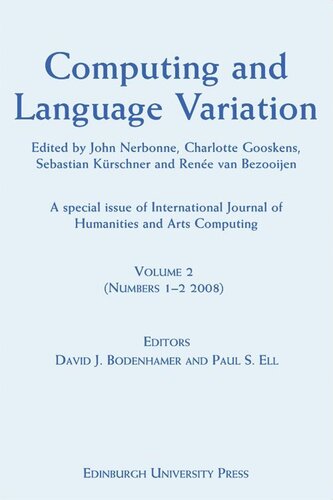

Most ebook files are in PDF format, so you can easily read them using various software such as Foxit Reader or directly on the Google Chrome browser.
Some ebook files are released by publishers in other formats such as .awz, .mobi, .epub, .fb2, etc. You may need to install specific software to read these formats on mobile/PC, such as Calibre.
Please read the tutorial at this link: https://ebookbell.com/faq
We offer FREE conversion to the popular formats you request; however, this may take some time. Therefore, right after payment, please email us, and we will try to provide the service as quickly as possible.
For some exceptional file formats or broken links (if any), please refrain from opening any disputes. Instead, email us first, and we will try to assist within a maximum of 6 hours.
EbookBell Team

4.8
74 reviewsComputing and Language Variation explores dialects and social differences in language computationally, examining topics such as how (and how much) linguistic differences impede intelligibility, how national borders accelerate and direct change, how opinion and hearsay shape perceptions of language differences, the role of intonation (melody), the differences between variation in pronunciation and vocabulary, and techniques for recognizing structure in larger collections of linguistic data. The computational investigations engage more traditional work deeply, and a panel discussion focuses on the opportunities and risks of pursuing humanities research using computational science. There is also an extensive introduction which attempts to sketch perspectives from which to approach the individual contributions.